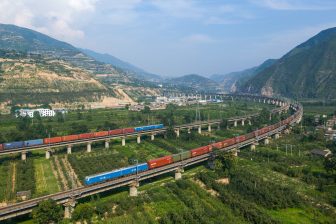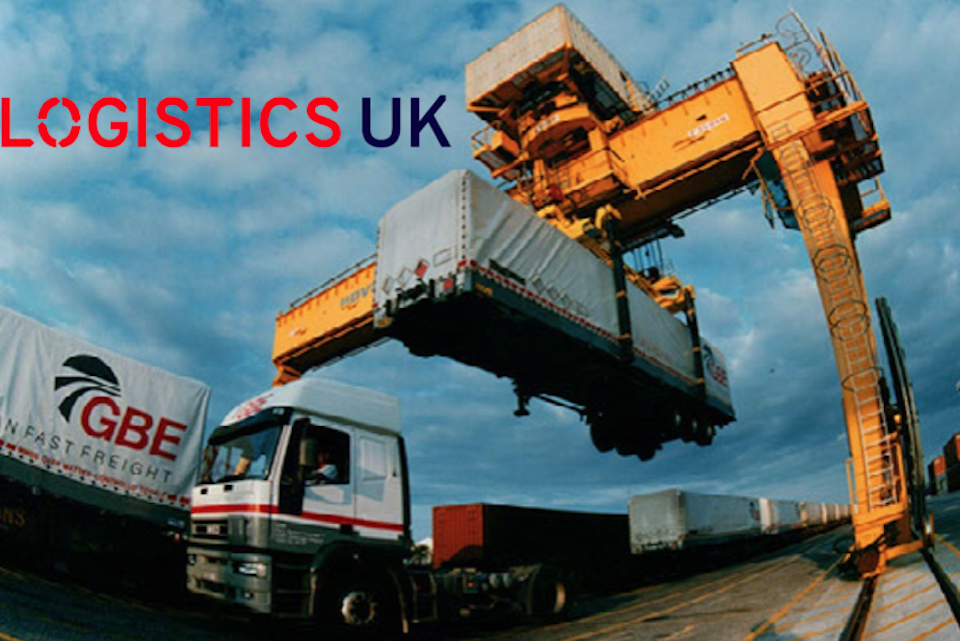Logistics UK: rail freight drives pandemic recovery 19/08/20
< Retour à la listeSource: https://www.railfreight.com/business/2020/08/19/logistics-uk-rail-freight-drives-pandemic-recovery/
Logistics UK, the new name for the Freight Transport Association, has been working hard to support the sector that has been supporting the UK economy by quietly going about its business, round the clock and around the entire country. Multimodal policy manager at Logistics UK, Zoe McLernon (pictured) argues that the country would be in serious trouble without the endeavours of the rail freight industry.
Since the start of the COVID-19 pandemic, rail freight has played vital role in supporting the economy by helping to keep the nation stocked with the essential goods it needs throughout the crisis. Zoe McLernon, says that in the midst of redefining her organisation to better encompass the diversity of their membership, the rail freight link in the Logistics UK chain was the one that could not break. “From launching dedicated services for transportation of critical supplies, running faster trains and increasing cargo capacity, rail freight has been a key factor in keeping supply chains intact and across many countries and industries – particularly China and Russia – the mode has experienced significant growth”, she says. The pandemic is affecting rail freight, but has generally reinforced the value of the mode during the crisis, rather than expose short comings. She paints a confident picture of the post-COVID-19 future for the sector.
A lifeline for logistics
Compared with road based transport, McLernon says rail freight requires fewer checks, which results in less need for human interaction and therefore a lower potential risk of infection. “Rail has become the transportation mode of choice for many businesses looking to trade with overseas partners safely”, she says. “It is also able to carry large quantities of goods efficiently and safely. For example, the number of freight trains running between China and Europe increased significantly (72 per cent) in the first five months of 2020 compared with the same period last year, according to the China Railway Shanghai Group.”

Two-way traffic along the New Silk Road. Freight trains pass in China
Changing to Logistics UK has been more than a name and logo exercise. Like the rail freight sector, the organisation has stepped up to provide vital services to support its 18000 members. McLernon says that the sector has been active in more than the obvious distribution of supermarket supplies. The sector is now transporting the biomass needed to generate energy, helping to keep the lights on in 450,000 homes across the UK. She also says note should be made of the efforts to work with suppliers on new routes from Valencia and Murcia into London to help transport essential hygiene, medical and food products.
Future impact: Autumn slowdown
The future holds some challenges for rail, beyond the immediate pandemic crisis. “Despite providing such vital services, UK rail freight volume is still predicted to fall in the coming months”, observes McLernon. “As exports and imports slow, rail freight operators can expect to see a drop in container trains from the UK’s main ports across the summer.”
The pandemic has also been a reminder of the vulnerability of complex, long-distance supply chains and how much they are impacted when the usual drumbeat of regular delivery stops. “It is likely that many businesses will seek to shorten the supply chain going forward by finding suppliers much closer to home”, says McLernon.
Mode Shift Revenue Support programme
However, the overall uptake of rail on a global scale does present an opportunity to spark a more permanent shift to rail for environmental and business benefit, argues McLernon. “To support a shift to rail in the UK, Logistics UK is calling for certainty over future budgets for the Mode Shift Revenue Support (MSRS) grant scheme, a government initiative to fund the additional operating costs incurred by companies as they move to alternative transport. With rail freight set to play a crucial role in the nation’s economic recovery moving forwards, it is vital government acknowledges its importance. Operators across the sector should have increased access to the national rail network permanently.”

Logistics UK, the new image for the Freight Transport Association, represents over 18,000 member businesses, employing around seven million people
A true picture of the pandemic’s long-term impact on freight transportation only just emerging, says McLernon. “As a more environmentally sustainable mode of travel, we expect to see governments encourage the use of rail freight globally, whatever economic challenges and supply chain changes lie ahead.”
Seven million people directly employed in sector
As one of the UK’s leading business groups, Logistics UK represents businesses with more than seven million people directly employed in the making, selling and moving of goods. “With COVID-19, Brexit, new technology and other disruptive forces driving change in the way goods move across borders and through the supply chain, logistics has never been more important”, says McLernon. “Logistics UK supports, shapes and stands up for safe and efficient logistics, and is the only business group which represents the whole industry, with members from the road, rail, sea and air industries, as well as the buyers of freight services such as retailers and manufacturers whose businesses depend on the efficient movement of goods.”
While urging businesses to visit Logistics.org.uk, McLernon emphasises the research work undertaken by the organisation. She fervently believes that, unlike the current pandemic, Logistics UK will be with us for many years to come.





